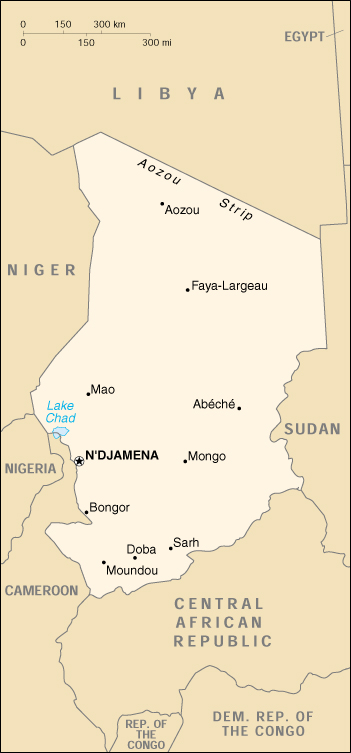

Status Quo Side: Habre/pro-West
Non-Status Quo Side: Goukini/pro-Libya
Region: Africa
Conflict Type: External Intervention
Issues in Dispute: Resources, Territory
The population of Chad comprises Arabic-speaking Muslim nomads of North Africa and French-speaking sedentary farmers of Central Africa. After independence in 1960, the policies of President Francois Tombalbaye had the support of France. In response, northerners created FROLINAT (Front for the Liberation of Chad) which received arms from pre-Quadafi Libya. Libya had taken control of the mineral-rich Aouzou strip in 1973. In 1975 Tombalbaye was overthown and replaced by Gen. Felix Malloum who appointed as Vice-President FROLINAT leader Hissen Habre. The coalition fell apart.
Habre's forces seized the capital, N'Djamena. In August representatives of 11 Chadian factions met in Lagos with observers from 10 African countries and the OAU. Goukini Oueddei became president of a transitional government of national unity (GUNT).
Goukini and Habre forces fought in N'Djamena. GUNT arranged the withdrawal of French forces and with Libyan aid drove Habre's forces into Cameroon and W. Sudan. While recognizing GUNT, the US in 1981 sent aid to Habre via Egypt and Sudan. Goukini, at French insistence, persuaded Libya to withdraw by mid-November. Habre, circumventing OAU peacekeepers, retook N'Djamena in June 1982. Goukini, with Libyan help, attacked from the north. France sent troops to help Habre halt the offensive at the 16th parallel.
France and Libya agreed to withdraw their forces from Chad, but Libyan President Muammar Quadafy reneged and took control above the 16th parallel. Chadians rallied to Habre.
Goukini, with Libyan aid, attacked southward. France sent Habre air and logistic support. In September Goukini, with US aid, fought Libya. Libya's air attacks south of the 16th parallel threatened military confrontation with France.
Quadafi, while maintaining his claim to the disputed Aouzou Strip, admitted his adventure into Chad had been a mistake. In August 1989 both sides agreed to withdraw troops and seek a peaceful settlement. When mediation failed to resolve the Aouzou Strip dispute, the case went to the ICJ, which ruled against Libya in February 1994.
Libyan withdrawal from the Strip was monitored by a small UN observer group, UNASOG, and completed on May 31, 1994.
In February, 2000 Hissene Habre was indicted for torture and crimes against humanity by a court in Senegal, where he was living in exile. The indictment, for which he was placed under house arrest, charged his administration with responsibility for 40,000 political assassinations and 200,000 torture cases.